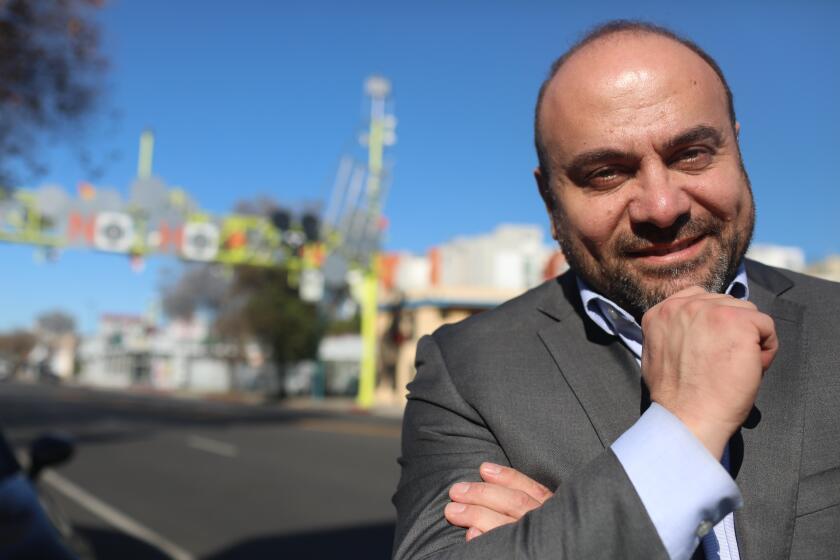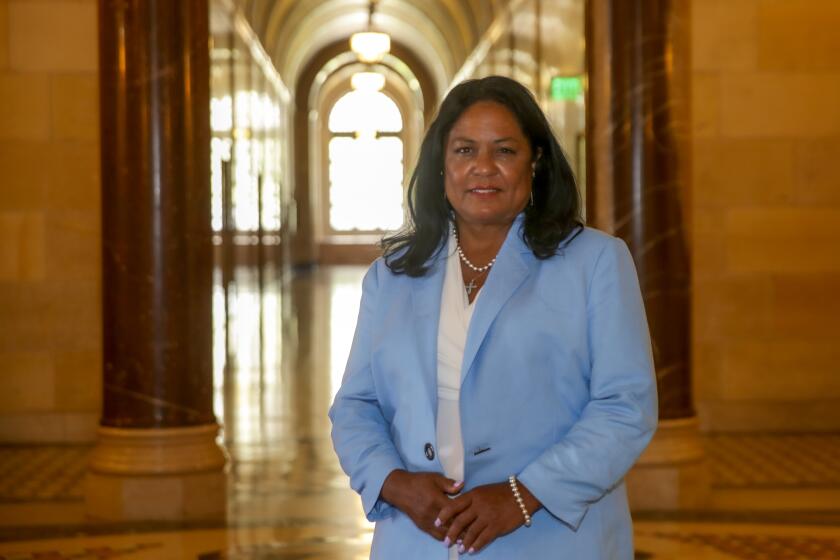Editorial: The tug of war between UC and lawmakers
The University of California Board of Regents has survived repeated attacks on its political independence by state legislators frustrated with their lack of power over the board. So it was not terribly surprising when Sen. Ricardo Lara (D-Bell Gardens) began a new effort this session to shorten the term of regents, limit the number of terms they can serve and subject them to Senate approval every four years. Regents currently may serve an unlimited number of 12-year-terms, a system that was designed to let them outlast the governor who appoints them and to keep them free from too much overt political pressure from state leaders.
Lara’s legislation was expected to be heard in committee this week, but after a push by disconcerted regents and the university itself, the meeting was put off indefinitely. Still, this will not be the last attempt to chip away at the autonomy of the university and the regents who govern it. This is Lara’s third attempt to limit the power of the 26-member board. Last year, his SB 376 would have forced the University of California system to spend millions more each year to pay contract workers the same wages and benefits as employees. (It was vetoed by Gov. Jerry Brown.) In 2014, Lara proposed stripping away the regents’ constitutional authority and giving the Legislature some control over UC operations, such as the ability to veto tuition hikes. Sen. Leland Yee proposed similar legislation in 2009 after UC regents approved high salaries for new chancellors at UC San Francisco and UC Davis while also increasing undergraduate fees.
It is no doubt exasperating to legislators that they can’t force regents to do what they want when they want them to. And in some cases, they may have reason to be concerned. Lara, for instance, is interested in issues like access and affordability, and believes that with more legislative control, they might be addressed to his satisfaction.
Where’s the evidence that giving lawmakers more power over regents would improve the UC system? It seems more likely that legislators would tamper with the things that work.
But Lara and his colleagues have adequate platforms to address such issues without changing the state Constitution, which specifically states that “the university shall be entirely independent of all political or sectarian influence and kept free therefrom in the appointment of its regents and in the administration of its affairs.” The idea behind that language was to provide the Board of Regents shelter from political storms. The long terms were partly intended to allow regents the freedom and time to develop a deep understanding of the complicated institution they govern.
It is a formula that has worked out well. The University of California is one of the top public research institutions in the world. UC Berkeley is consistently ranked the best public university campus in the nation. Yes, the UCs have their stumbles. There are concerns about rising tuition and about the large number of out-of-state students. The pepper spraying of student protesters at UC Davis and the subsequent attempt to cover up online accounts of it — and just last week the suspension of that campus’ chancellor — are among the low moments in UC history, but they don’t suggest systemic deficiencies that require dramatically increased legislative oversight.
Besides, it’s not as if the regents are some secret cabal operating without any accountability. The governor appoints 18 of the 26 members, and the state Senate confirms them. Seven regents are ex officio members — including the governor, the lieutenant governor and the Assembly speaker. The Legislature wields power also because it determines how much funding the UCs will receive in the state budget each year.
Where’s the evidence that giving lawmakers more power over regents would improve the UC system? It seems more likely that legislators would tamper with the things that work, perhaps giving in to the same temptation to micromanage academics that they have succumbed to in the state’s K-12 schools. Do we want UC professors to be ordered to stress “the significance of President Barack Obama’s election” as middle and grade schools in California have been urged to do by the Legislature? Should UC professors be warned not to expose students to material that reflects negatively on “race, color, creed, national origin, ancestry, sex, handicap, or occupation, or that contain any sectarian or denominational doctrine or propaganda contrary to law”? Aren’t these decisions better left to academics and educators rather than politicians?
Follow the Opinion section on Twitter @latimesopinion and Facebook
More to Read
A cure for the common opinion
Get thought-provoking perspectives with our weekly newsletter.
You may occasionally receive promotional content from the Los Angeles Times.










